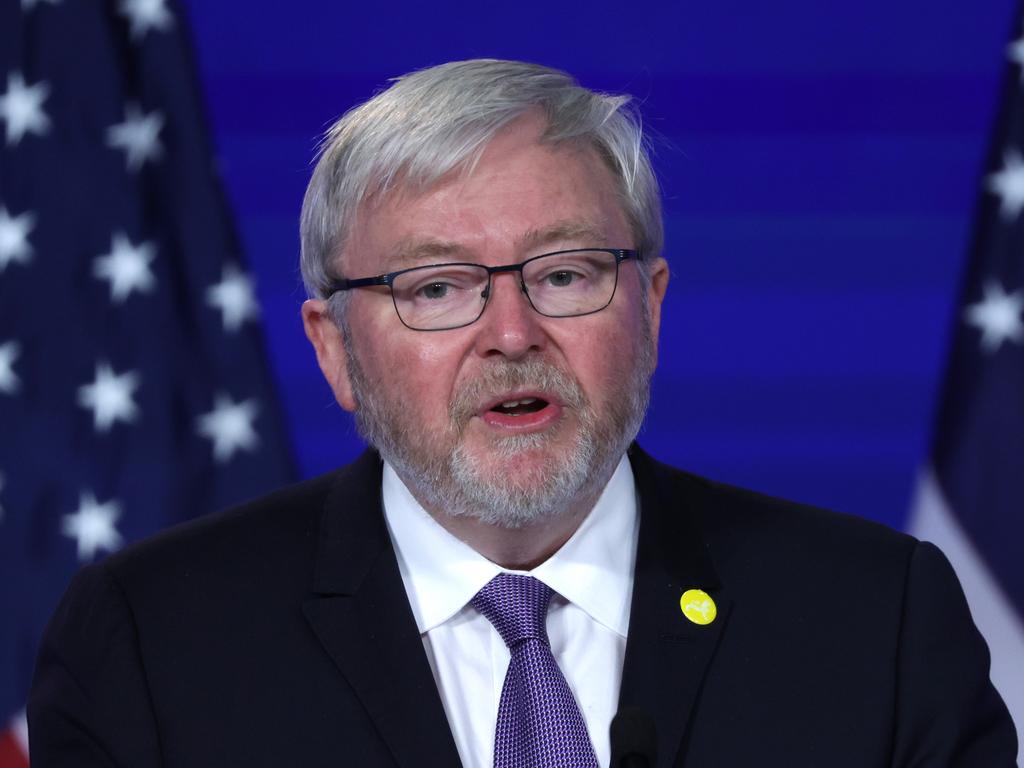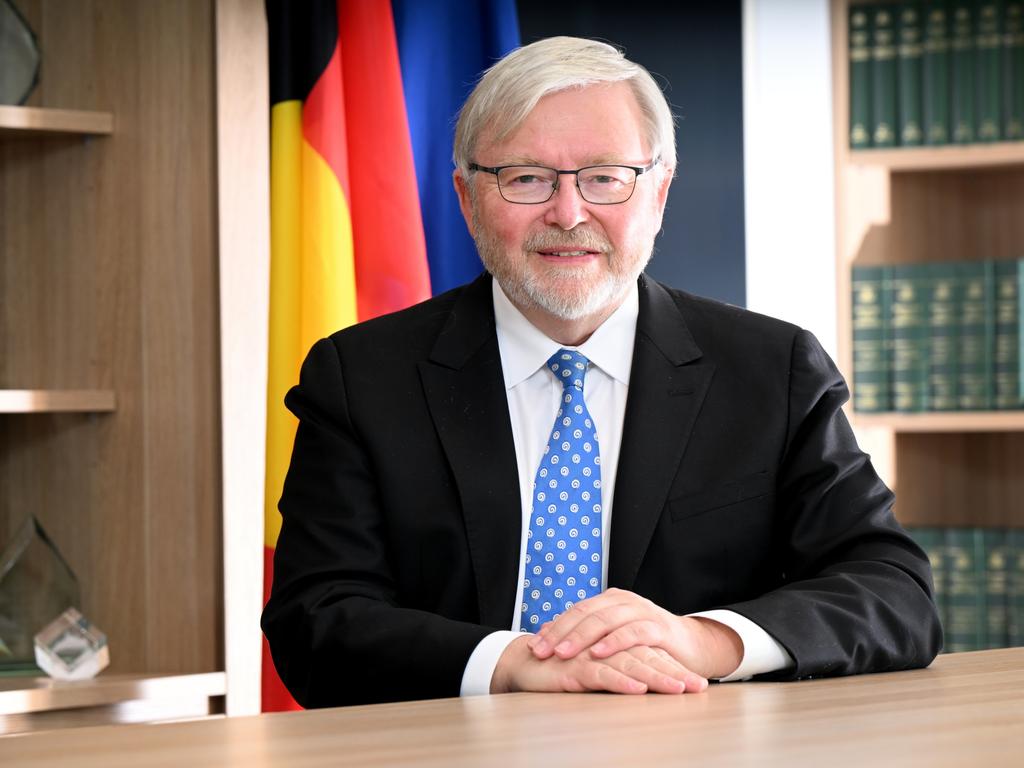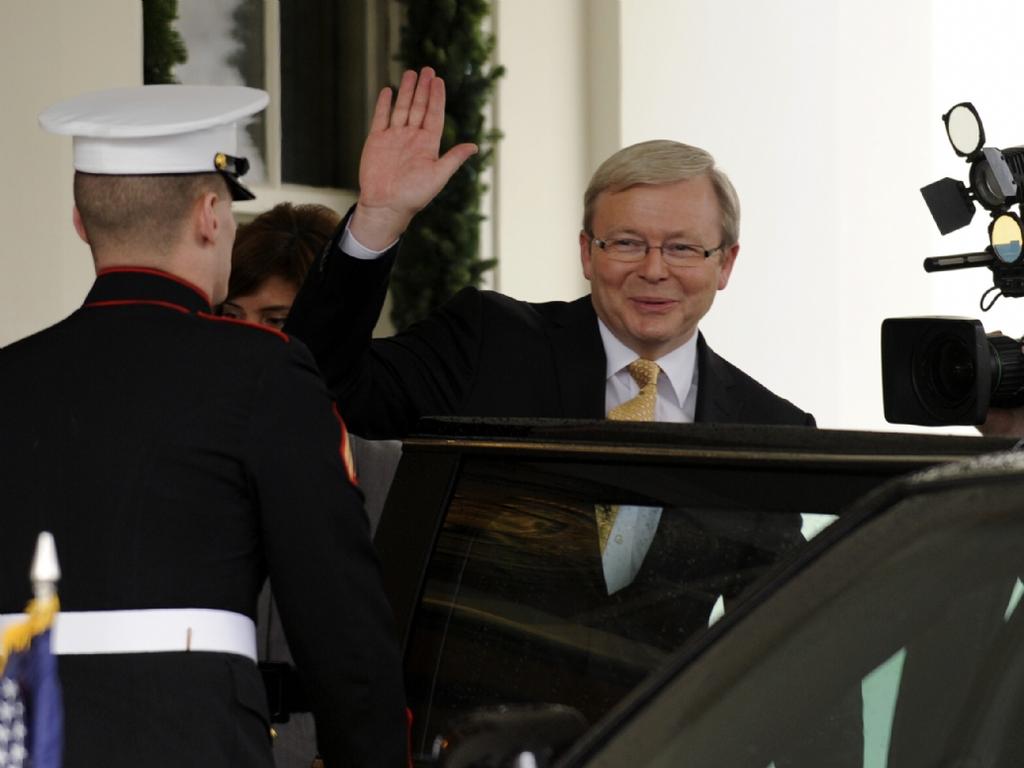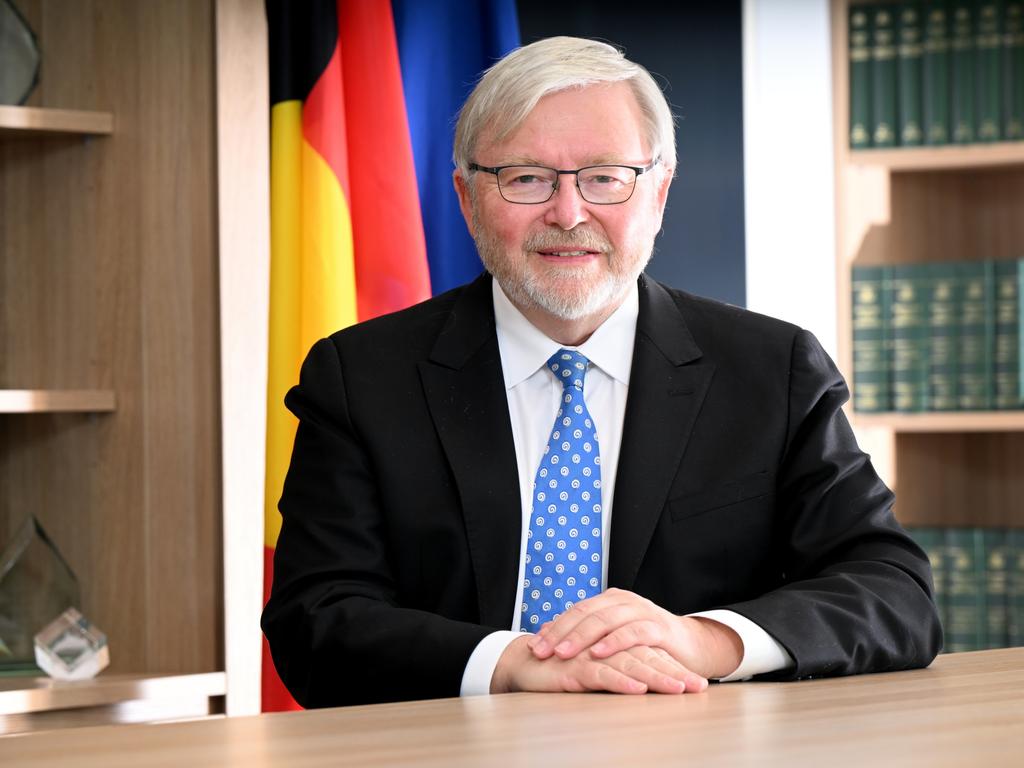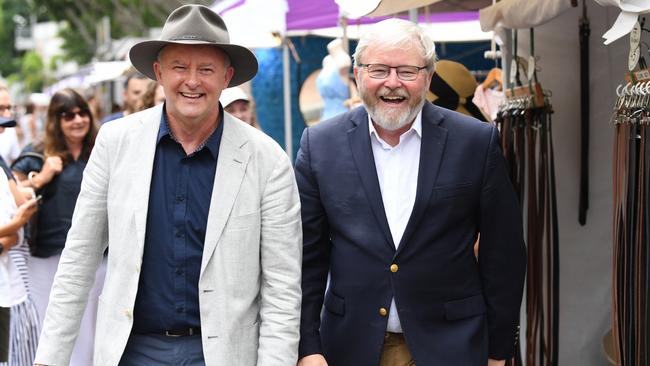
Ambassadors to Washington have three essential roles. First, they need the personal standing to have regular access to the White House, with the president when needed and frequently with close presidential advisers.
Second, the ambassador must have direct mobile phone access to the Australian prime minister. Yes, the position reports to the foreign minister, but this is the one diplomatic post the prime minister unfailingly relies on to manage their personal standing with our most important ally.
Third, our man in Washington (up until now it always has been a man) must be taken seriously by the American policy elite in congress, the Defence and State departments, the intelligence agencies and the think tanks.
Washington’s pulse beats to the rhythm of policy influence. An ambassador who can’t tap that vein won’t shape events to meet Australia’s interests. On the issues that matter most to us, the Australian embassy has real policy impact in DC. It’s about our only remaining diplomatic post properly resourced to do this.
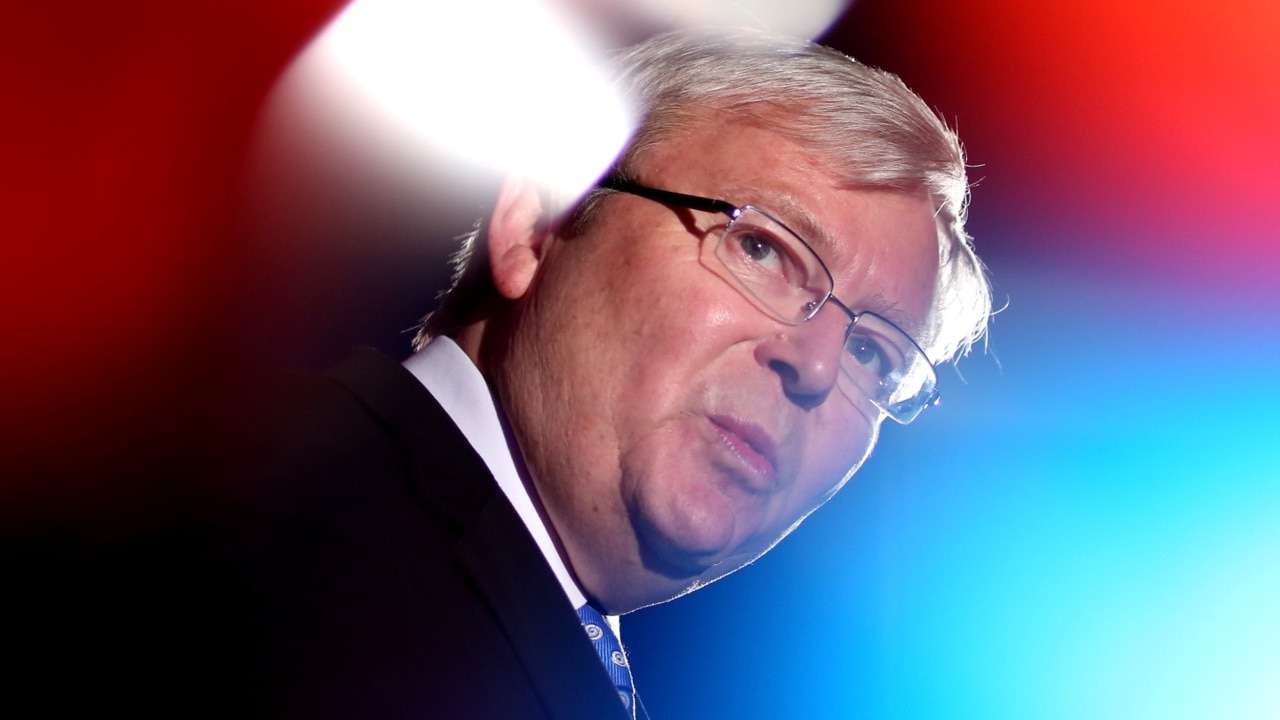
Australia’s standing in Washington is maintained because we have posted mostly effective senior people into the ambassador’s job. Kim Beazley’s enthusiasm and policy engagement, Joe Hockey’s affability and business nous, and Arthur Sinodinos’s calm policy smarts – those qualities, and their direct line to the prime minister, all opened doors.
Judged on these measures Kevin Rudd more than passes the suitability test for the ambassador’s job. On international security Rudd is a better strategic thinker than anyone in cabinet, based on his deep engagement on the topic across decades. Understanding strategy requires the ability to think about long-term trends in national behaviour – what former ambassador to the US Michael Cook called the deep ocean currents of long-term policy aims, as opposed to the surface chop of daily politics.
My experience of Rudd is that he understands those strategic issues. That’s clear from his 2009 defence white paper, which started to shape Australian defence thinking around the rise of Chinese military power.
Rudd heads a seriously good think tank on Asia in New York and his writings on China show that he has deepened this policy expertise since leaving office. Americans respect Rudd for this proficiency more than they know his dysfunctional prime ministership. It may be that Rudd has landed his ideal job.
He does not have control of Australian policy levers but will have maximum opportunity to engage with senior American leaders, injecting an Australian accent into debates that go to the heart of our interests.
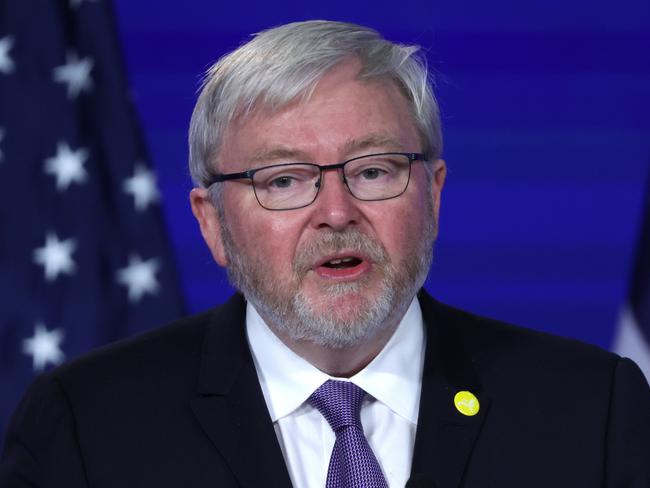
Let me add that I’m quite familiar with Rudd’s policy management style. When he was prime minister, senior public servants looked forward to the days when an overseas trip meant that Julia Gillard took on the acting reins and could clear the policy in-tray.
A Labor minister told me once with rueful amazement of waiting with colleagues for a scheduled cabinet meeting to start, only to be told by an embarrassed official that the meeting was postponed because Rudd had decided to go for a walk with his chief of staff.
So be it. It’s often the case the deputy chief of mission in the DC embassy plays the role of executive officer to run the show. Rudd’s job will be to deliver access and influence in Washington. And Anthony Albanese’s job will be to make sure his ambassador is pointed at the right targets.
Early in his term of office John Howard appointed his political arch-rival Andrew Peacock to be ambassador in Washington. In his autobiography, Lazarus Rising, Howard writes Peacock’s ambassadorship brought “unmatched political contacts on both sides of the American political divide and he would go on to fill the position for three years with effortless skill”.
In fact, Peacock held the job for just over two years but he cemented a permanent feature in Australia’s ties with the US, which is that it’s the prime minister who drives the relationship from Canberra, not the foreign minister.
There was a somewhat brittle smile from Penny Wong at Tuesday’s press conference with Albanese when a journalist asked: “Are you worried about essentially having a second foreign minister in the United States?”
That will be the test for the appointment. Rudd has had nine years to publicly riff his views on Australian politics, AUKUS, Donald Trump and China. An ambassador’s latitude doesn’t extend to independent comment, but Rudd’s independently minded predecessors all stuck to Canberra’s policy lines when needed.
Here are four points to watch as Rudd establishes his tenure.
First, every prime minister gets to make some captain’s calls, and this is a big one. A straw poll of the Prime Minister’s cabinet colleagues probably would not back Rudd for the job. Kudos to Albanese if it works. If it fails, well, the captain carries the can.
Second, AUKUS is the only national security game in town. We are told that in March we will learn the details of which nuclear-propelled submarine design will be selected for Australia. (It will be a derivative of the American Virginia-class hunter-killer sub.)
Notwithstanding his earlier scepticism, Rudd’s key job will be to flatten any institutional block in Washington to Australia acquiring nuclear propulsion. AUKUS failure would be fatal for Albanese, much as Scott Morrison’s handling of the French submarine cull was a sucking wound to his political tenure.
Third, Rudd thinks strategically, but the Department of Foreign Affairs and Trade does not. DFAT’s focus for years has been on the elegant management of Australian decline. This will be fun to watch – a fundamental clash of cultures between big and sometimes scattered ambassadorial thinking versus a snail-like departmental timidity overshot with Wong’s iron control.
Fourth, China. Beijing’s Global Times unfailingly misreads Australia. It reports that Rudd’s appointment means “Australia prioritised the issues related to China when dealing with its top ally the US”. That is true only in the sense that Australia is doubling down on strategic co-operation with the US to strengthen our capacity to push back against Beijing’s aggression.
Finally, Trump. Some worry that Rudd’s disparagement of Trump may do harm as we move closer to the 2024 presidential election. I doubt that. Rudd’s challenge will be to build ties with the Republicans as they look to rebuild after Trump. Trump’s presidential days are over. Rudd judged him pretty accurately. That will only help the ambassador in Washington next year.


